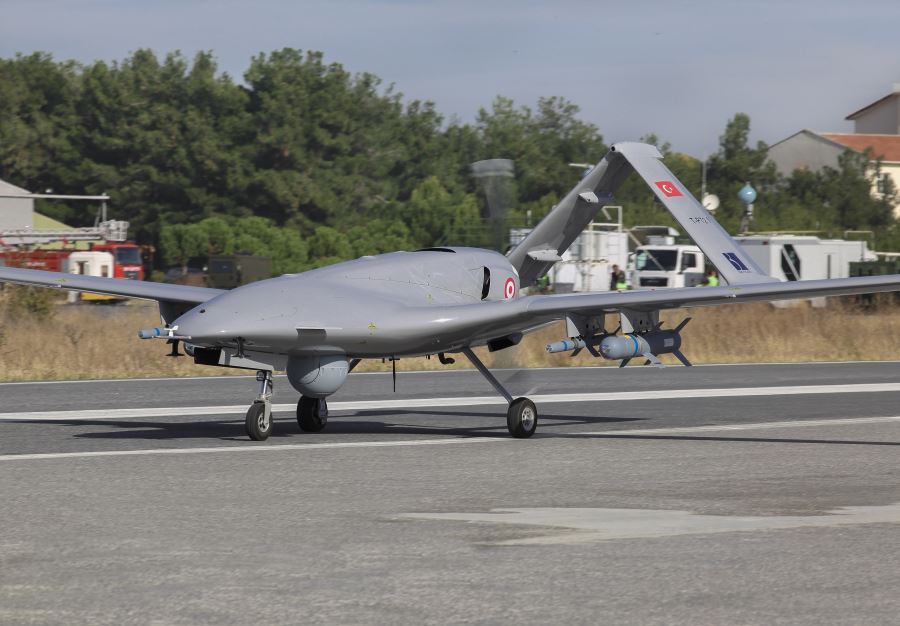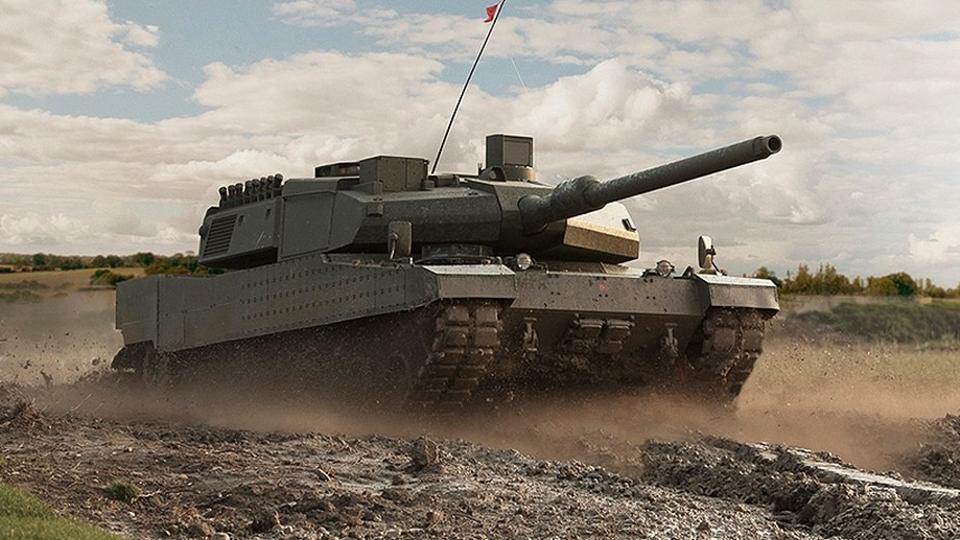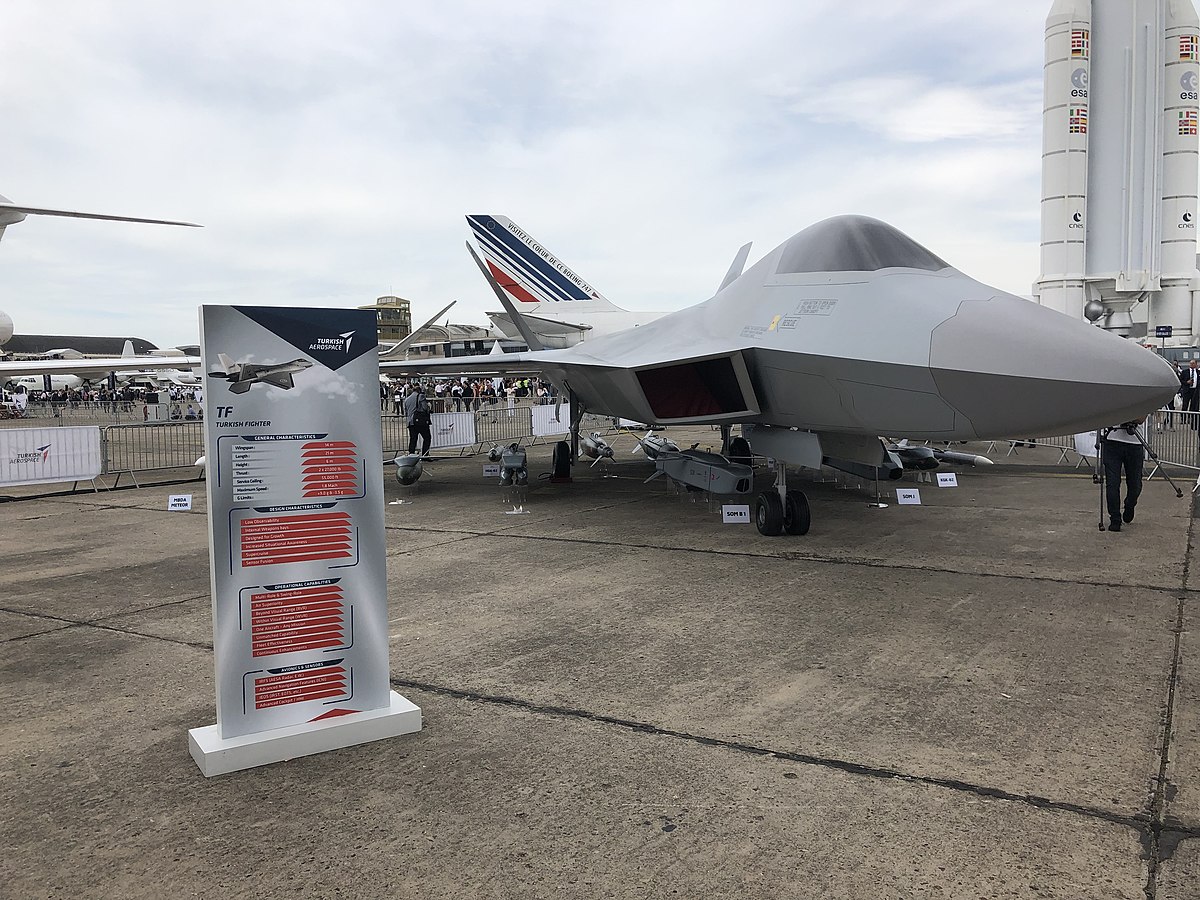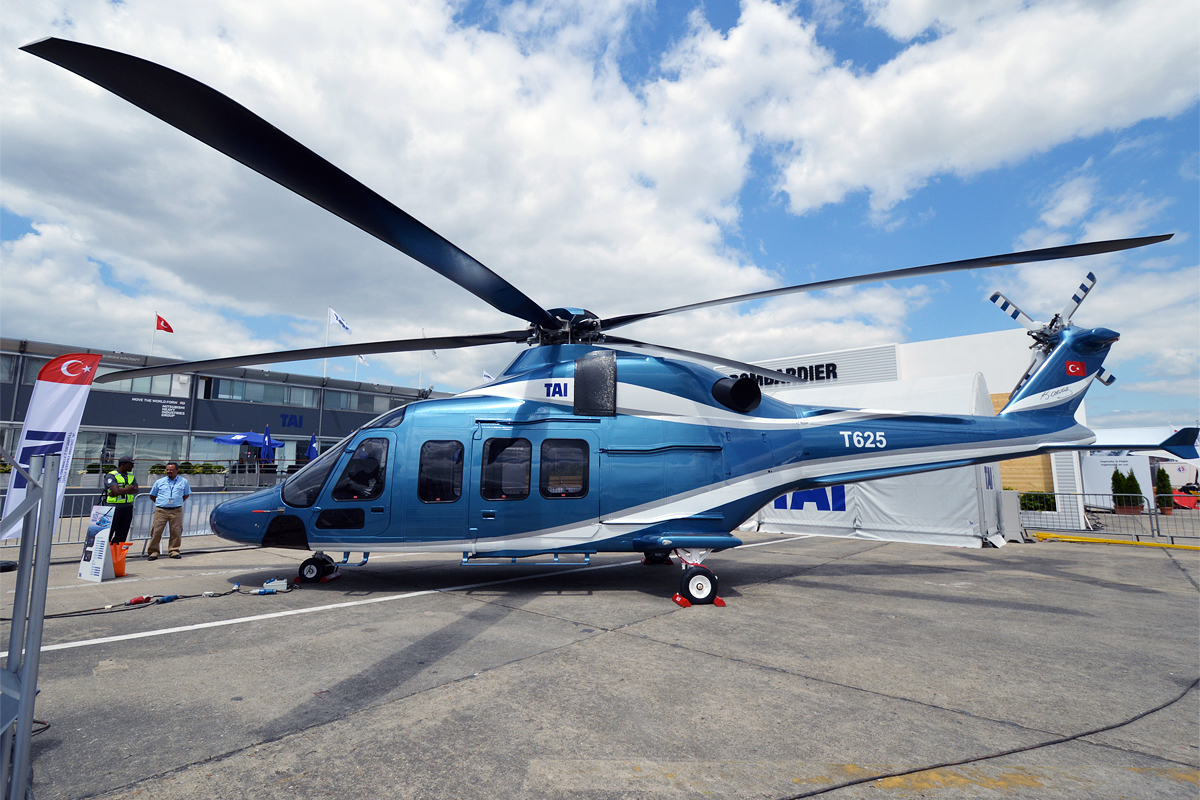
In recent years, as has been thoroughly mentioned and covered, Turkey has made great strides in developing its military capability.
As a testament to that sits the Bayraktar TB2 combat UAV, which is being exported to local conflicts all around, and is being used with quite the successful track record.
The Turkish military-political leadership sets ambitious tasks to achieve self-sufficiency in almost all types of weapons and military equipment, as well as to increase defense exports from the country.
This quick progress is only hampered by one thing: the need to import many parts from abroad, and (especially in Bayraktar’s case) disruptions in supply chains due to various reasons.
Namely those reasons include bans of governments or just the decisions of part manufacturers to sell parts to Turkey. This could be due to various reasons – the drones being allegedly used on civilians, by militants, as well as through to a push by Armenia (when it relates to the Nagorno-Karabakh war), and potentially Israel (which is the premiere UAV seller worldwide).
This is a significant issue in Turkey’s military development, as outlined by Russian website NVO.
This systemic deficiency of the Turkish military-industrial complex is most clearly reflected in engine building, demonstrating the general underdevelopment of classical mechanical engineering in Turkey.
No progress in systems integration, electronics and the creation of a number of other new industries can compensate for the lack of engine building, which requires a solid school of development and production and expensive well-equipped enterprises.
For Turkey, the situation is exacerbated by the difficulty of accessing Western military engines or licenses and technologies for military propulsion.
The reason for this is the aggravation of relations with Western countries, which have subjected Turkey to various kinds of formal and informal embargoes.
As a result, all of Turkey’s most ambitious military-industrial programs in recent years have been hampered by a lack of access to engines.
Attempts by Turkey to develop the engine building itself have so far been relatively unsuccessful. Both due to the lack of experience and due to the increasingly obvious reluctance of Western countries to cooperate with Turkey in terms of technology transfer and licenses.
In addition, foreign suppliers of engines began to restrict their re-export, making it impossible for Turkey to supply foreign military equipment of its own production with imported engines.
In particular, due to the lack of an engine, the start of mass production of the Turkish Altay main battle tank is seriously hampered.
Four prototypes of the Altay main battle tank are equipped with German MTU MT 883 Ka 501 diesel engines. However, the deteriorating relations between Turkey and the FRG in recent years contributed to the desire of the Turkish defense industry and the military to abandon German engines.
And to the development of an ambitious program of mastering the production of a tank engine in Turkey with maximum localization, including full intellectual property rights and export rights.
In 2015, the Turkish tractor construction company Tumosan received a €190 million contract from the Turkish Defense Industry Administration for the construction of a diesel engine with a capacity of 1,500 to 1,800 hp for Altay with foreign technical assistance.
Tümosan chose the well-known Austrian company AVL List GmbH as a partner in the development of the engine and obtaining technologies.
However, at the end of 2016, the Austrian government denied AVL List a license to transfer technology to Turkey.
The fact is that the Austrian parliament unanimously demanded the imposition of an embargo on the supply of weapons and military technology to Turkey in view of the massive human rights violations committed by the Turkish government following an unsuccessful military coup attempt on July 15, 2016. As a result, in 2017, Tümosan was forced to terminate the cooperation agreement with AVL List, and Turkish Defense Industry Administration then canceled the contract with Tümosan to build the engine.
After that, Turkish contractors tried to find a new partner for the development of a tank diesel engine among various global manufacturers. The Turkish Navy company, which received a contract for the serial production of the first 250 Altay main battle tanks.
In 2017 it reached an agreement with the British company Perkins, controlled by the American corporation Caterpillar, to master the production of an updated version of the well-known Perkins CV12 tank diesel engine.
It was previously used in various versions on the British Challenger 1 and 2 battle tanks, as well as on the T-72M4CZ battle tank modernized in the Czech Republic.
At the same time, taking into account the duration of the process of mastering this engine, it was planned that the first 250 production Altay main battle tanks would still be equipped with imported German MTU engines, and localized CV12 (Batu) engines would go to the next series of tanks.
Germany generally refused to supply MTU engines and Renk automatic transmissions for production Altay main battle tanks, and the process of transferring a license for the CV12 engine also stalled.
And as such the Altay main battle tank production program remains in limbo, still. although the first tanks were supposed to be surrendered in 2020. Now even 2022 looks like a too optimistic date to start producing a Turkish tank.
“The lack of a suitable engine and transmission robs the program of any tangible progress,” a representative of the Turkish military-industrial complex said in the summer of 2020.
In this regard, the Turkish side has repeatedly considered the possibility of using the Ukrainian 6TD-3 tank engine developed and manufactured by the Kharkov State Enterprise. This could be the next step after Ankara sold Bayaktar TB2 UAVs to Kiev, and even could shift some production there.
Turkish aviation programs have similar problems. In 2017, with the participation of then British Prime Minister Theresa May, a £100 million agreement was signed between the Turkish Kale Group and Rolls-Royce to establish a joint venture to develop and manufacture an engine for the most ambitious project of the Turkish military-industrial complex – the prospective TF-X fighter jet.
However, in March 2019, the agreement with Rolls-Royce was frozen – nominally due to disagreements between the parties over intellectual property rights.
Not finding other suitable conditions, at the end of 2019, the Turkish government again began negotiations with Rolls-Royce. However, there is no information on progress in the renewal of the agreement.
Earlier, the Turkish state-owned aircraft manufacturer Turkish Aerospace Industries (TAI) signed a cooperation agreement with the British BAE Systems on the first stage of development of the TF-X fighter. Turkey initially planned to fly the first TF-X prototype in 2023. But today, 2025–2026 is already cautiously dubbed as the term – including due to the lack of an engine. On the prototypes, apparently, in any case, some imported engines will be installed.
Turkish helicopter projects are critically dependent on imports of American CTS-800A turboshaft engines manufactured by Light Helicopter Turbine Engine (LHTE), a joint venture between the American corporation Honeywell and Rolls-Royce.
And also, on the T625 Gökbey multi-purpose helicopter developed by TAI independently, the first prototype of which made its first flight in 2019. In the past couple of years, the Americans have denied Turkey the right to re-export CTS-800A engines to Pakistan and the Philippines, which ruined agreements on the supply of T129 helicopters to these countries.
To replace the CTS-800A engines on the T625 helicopters (and, in the future, on the T129), the Turkish company Tusas Engine Industries (TEI) controlled by TAI is working on the creation of its own turboshaft engine TS1400 with a capacity of 1400 hp.
TEI announced earlier this year that it successfully tested the gas generator of the TS1400 engine and plans to deliver the first prototype engine to TAI by the end of 2020. However, in general opinion, due to Turkey’s lack of experience in creating such engines, its development and fine-tuning will take a long time.
In parallel, the Turkish group Kale is developing a larger small-size turbojet engine KTJ-3200 with a thrust of 3.2 kN. It is planned that they will be equipped with Turkish Atmaca anti-ship missiles (prototypes use the Safran TR140 engine) and all the same SOM aircraft cruise missiles.
But until now, all these Turkish small-sized turbojet engines have not left the experimental stage, and it is not known when they will be brought to full operation.
Returning to Turkey’s most successful piece of equipment in recent years, the Bayraktar TB2 combat UAV, the Canadian company Bombardier Recreational Products, which owns the Austrian Rotax, announced the termination of the supply of engines to Turkey for installation on UAVs. This forced Turkey to look for a replacement.
TEI has been developing PD-170 piston engines with a capacity of 170 hp for use on Turkish UAVs for a long time. But this motor is still in an experimental stage – although it was installed on the first prototype of the heavy Turkish twin-engine UAV TAI Aksungur (ANKA-2, aka YFYK), which made its first flight in March 2019.
At the same time, bench tests of the engine were again demonstrated in the fall of 2020. Nevertheless, in October 2020, it was announced that the PD-170 engine would be installed instead of the Rotax on a new modification of the Bayraktar apparatus with the TB3 index.
TEI is also developing a more powerful PD-222 piston engine with up to 250 hp. These engines, in particular, have been announced for installation on the new heavy twin-engine UAV Akinci developed by Baykar Makina.
In fact, despite serious efforts and significant funding, not a single aircraft engine created in Turkey (including the simplest piston PD-170) has been brought to mass production. It is obvious that the creation of engines even for drones is a very non-trivial design and industrial task.
MORE ON THE TOPIC:







https://boycottturkey.org/
Apart from Erdogans expansion ambitious and turkeys general poking their noses into other people’s business,they are doing what every sovereign nation should do,be militarily self sufficient,at least to the extent they can.
well done for that.
Ps
Compare to Greece for example,”we buy your crap no questions asked”,give us a cuddle and we’re good to go…(buy)
Compare with Luxembourg, why not?)
Because I’m not from Luxemburg.
But looking it up ,yea almost funny.
Every reasonable man knows about potentials of Greece and Turkey. It’s not comparable. Because Turkey is much bigger. You can’t compare a sedan with a bus. It’s the same as compare Turkey with even bigger and stronger countries (like mine), but it’s not fair. Compare Turkey with Iran or Egypt, Greece with Austria or Hungary, they are close.
Well have to start with the definitions.What do you mean by big,strong etc?
A sedan btw can outrun a bus…you get my drift.
Anyway it’s long conversation and life is short…
I’ll try to be short.) It’s called demagogic what you wrote.
anyone is surprised ?life is turkey getting worse and worse every year , most of talented young turkish people emigrated to EU for 6 times better money and own future and will never come back to banana republic of turkey.
” most of talented young turkish people emigrated to EU for 6 times better money ”
Sounds exactly like Russia, India, Pakistan, Eastern Europe, and most other countries. Your point ?
https://indianpunchline.com/france-challenges-russian-peacekeeping-in-caucasus/
Turkey’s desire to be domestically reliant on major weapon systems is a pipe dream. With all the political difficulties caused by Turkey and the human rights violations, will force the rest of the world not to share technology with them that will accentuate Turkish ambitions.
Russia was in a similar position before Crimea became part of the Russian federation, however Russians have the intellectual capacity to create domestic industries to replace the imported needs and become self sufficient.
Notably the turbine engine needed that was imported from Ukraine for their navy ships was produced domestically within a few years.
“human rights violations”
Nobody cares actually. It’s just an instrument to press on others, same as high level of noise for planes engines, which was installed to push out all foreign planes from EU and US. But all large engines still very loud.
Most of what they make is just a Turkic version of someone else’s technology e.g. T-125 ATAK is really just an Italian A129 Mangusta, Atlay is a warmed-over version of the German Leopard 2 and it’s drones all rely heavily on foreign components. That Turkish 5th-gen fighter jet is decades behind competitors and probably won’t be relevant by the time it comes out, if ever.
That’s the problem with relying on foreign equipment whilst also making so many enemies; like Erdogan has. Eventually it all catches up to you. Apart from Azerbaijan and the broken state of Ukraine, Turkey is completely surrounded by nations that don’t like it (to say the least). Nor does it have close relations with a single superpower.
“Altay” is licensed version of korean K2 “Black panther” and K2 is based on “Leopard-2”, or MBT-70 program, which is the base for L2, M1, japanese type 90 and several other models and prototypes like south-african TTD. Chinese tanks since type 98 is improvement of T-72 construction.
Eventually you might also catch up, continuing research and development from where others left off. There is no reason to reinvent the wheel.
perhaps turkey can buy some tech from ukraine; before they became a fake nation the produced decent engines, aircraft
Turks are not known to be intelligent. History proves it – look who was running the Ottoman Empire – people from the Balkans, mostly Christians who accepted Islam. Turkey can do baklava alone, nothing else. If the West cuts supplies and technologies, with Turkey is over. The erdomuzdogan shall be sanctioned and the border with Turkey – sealed so that no turkish proxies can cross it.